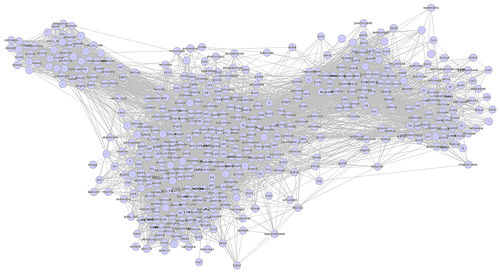

Is your Facebook network an echo chamber? Plenty of people angst over that and related questions; they worry that personalized communication and media networks keep us from being exposed to new ideas. If that’s really the case, one solution would be to try to mix people up as much as possible, so that you get exposed to the widest possible range of information. It might sound intuitive, but according to this study, it might be better to arrange moderate mixing while maintaining some natural clustering.
When you think about how people behave, it is certainly plausible. How often do you embrace new ideas, especially those contrary to your own views, when they are offered by a complete stranger or new acquaintance? Aren’t you more likely to give something a chance when it comes from a friend, someone you already know shares commonalities with you? It’s easier to imagine yourself being the kind of person who believes a given idea if you know someone else like you who already believes that idea. Conversely, if you consider someone as different or “other,” then any new idea they present is just part of their otherness and it’s easy to leave it that way.
It’s not hard to imagine this having implications for evangelism. In fact, it’s arguably already baked into the models of how God’s word spread as recorded in scripture. New ideas are always introduced in small communities and spread from there to increasing diverse populations — from Jerusalem to Judea, Samaria and the ends of the earth, as it were.
Andy has worn many hats in his life. He knows this is a dreadfully clichéd notion, but since it is also literally true he uses it anyway. Among his current metaphorical hats: husband of one wife, father of two teenagers, reader of science fiction and science fact, enthusiast of contemporary symphonic music, and chief science officer. Previous metaphorical hats include: comp bio postdoc, molecular biology grad student, InterVarsity chapter president (that one came with a literal hat), music store clerk, house painter, and mosquito trapper. Among his more unique literal hats: British bobby, captain’s hats (of varying levels of authenticity) of several specific vessels, a deerstalker from 221B Baker St, and a railroad engineer’s cap. His monthly Science in Review is drawn from his weekly Science Corner posts — Wednesdays, 8am (Eastern) on the Emerging Scholars Network Blog. His book Faith across the Multiverse is available from Hendrickson.

Leave a Reply